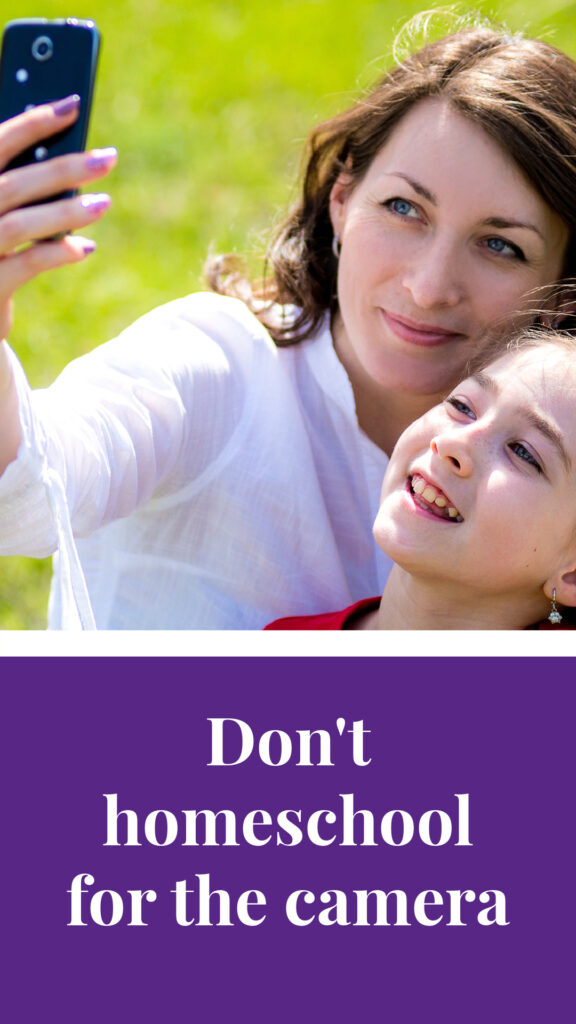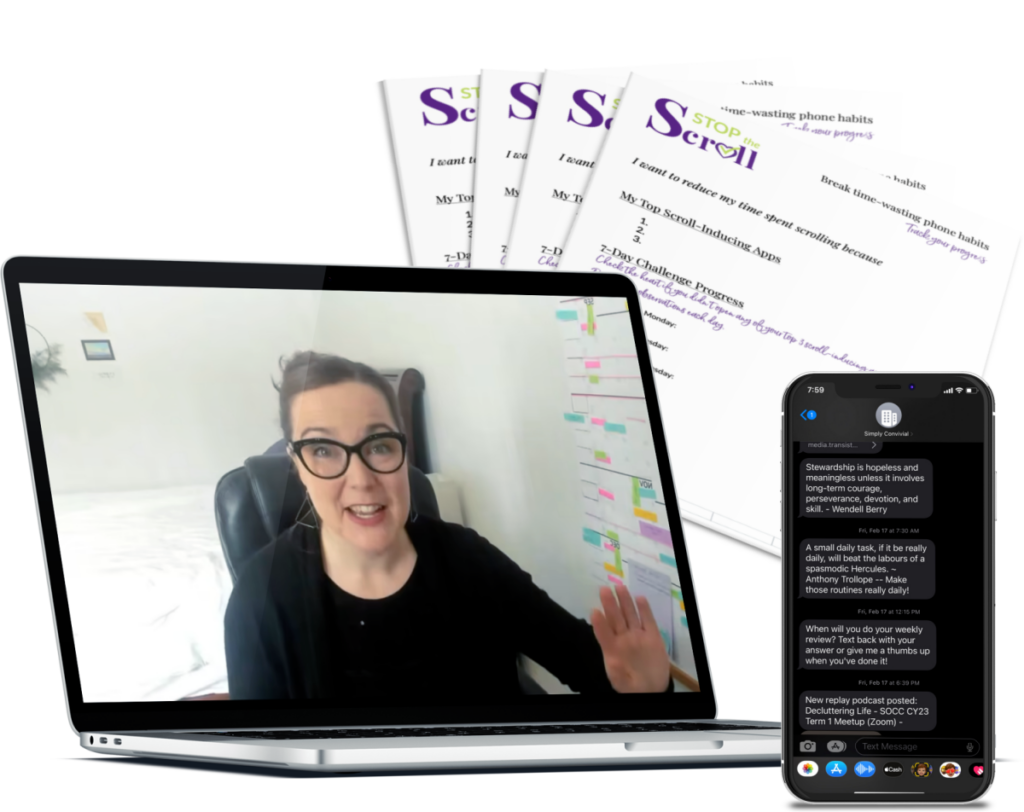Instagram is not good for our homeschools. It’s not good for our homemaking, either, or our mental and emotional health as women.
Instagram works as a comparison machine. An image from someone else’s life pops in front of our eyes and our minds are instant evaluators, analyzers. That’s what our mind does.
When presented with an idea – and an image is an idea presented apart from logical form – our mind begins working to either accept or reject that idea. Our typical default setting, especially when we’re in “chill out” mode with our phone and not analytically engaged, is to equate “acceptance” of the idea presented as “obligation” for myself.
If the photo we scroll by seems acceptable, our mind registers that it’s good. If it’s good, do we line up with the idea presented? My kitchen doesn’t look like any I see on IG, and a set of cute towels isn’t going to improve the situation.
Maybe it’s someone else’s children playing and they’re dressed in neutral linens, playing sweetly and calmly.
The aesthetic appeals. Our mind and heart says, “Oh, yes, lovely.” Then our own children careen loudly about us in, well, not-neutral and not-linen outfits of their own choosing. The difference is jarring.
Yes, obviously such comparisons can quickly lead to discontent and we all know that and have struggled with that.
However, even more is happening behind the scenes. The images we keep filling our mind with – at hazard, really, because we don’t know what people in our feed will post – shape our conception of normal.

A societal norm can be a good thing. It’s a way culture and standards and practices pass from generation to generation. We should say please and thank you – this is a social norm reinforced by most adults in many contexts upon children, and so they pick it up and then themselves pass it on. Clothing appropriate to the situation is also learned not by dress codes, but by seeing contexts and situations and images.
So now we have a weird social shift called social media. Outside a social context, sitting in our pajamas on the couch, we bombard ourselves with images that our brain is trying to sort out into social norms and expectations in the background. What we think it normal is now more shaped by what other people choose to post on social media (and who we choose to follow) than on interpersonal interaction in physical social contexts.
Before going out, we might do our hair and put on lipstick to present a neater and tidier self. That’s the result of proper social pressure to be kind to others by not being an eyesore. However, on social media, we have many more tools of presentation than a curling iron and lipstick. We choose what people see in the frame. We change the lighting with a tap. We add a filter to put on silly-looking makeup without taking any effort. We add our own narrative to our snapshot. And we contribute to the problem.
Social media is problematic on many levels, but the effects on our homeschool can be profound. We often don’t realize how constantly staring at photos of other people’s precious (or terrifying) homeschool moments interrupts and overshadows our engagement with our own children in our own homeschools.
With social media just an arm-length away at any minute, we have to be careful to not let it shape our homes and homeschools – by shaping our own perceptions – unwittingly.
Homeschooling for the likes?
In the morning with our coffee, we scroll. We tap the heart on all the cute photos or neat projects or inspiring words. In the background, our brain is rapidly trying to find patterns and accept or reject all the incoming impressions. Taxed, but not realizing it, we start our day and have no scenes like those we just liked.
We just spent thirty minutes reinforcing to ourselves what we like by tapping the heart in response to pretty pictures, and so, looking around, we find we don’t like our own life. It’s nothing at all like what we do like, after all. Rarely do these thoughts become conscious, but they rather lurk behind our narrowed, tired eyes.
We want to like our life and our homeschool and our children, of course. So we’re on the watch as we begin our day. What’s Instagrammable? What can I snap a photo of? When will be the right moment to take a 30-second video of what we’re doing to show the world?
We all act and think differently when a camera is present. For performances, everyone pulls out the stops and does their best when it’s recording time. However, neither learning nor parenting are performances. Yet we turn them into such when we have our camera ever-ready, when we are eager to snatch the perfect moment to document that we did, in fact, do something worthwhile today.
Let’s even give ourselves some maturity credit and say that how many likes our posts receive doesn’t matter to us (probably a self-deception). Even still, we have changed the environment and our role when we are over-documenters.
And as we post our little snapshots, how can we help but judge where we rank in our own feed? Do my photos or my insightful thoughts fit my feed? Am I keeping up? Are we behind? Are we doing enough? How do I get more natural lightening at my kitchen table for the sake of the photos?
Try homeschooling a week without looking at or posting on Facebook or Instagram – without taking a photo of your own homeschool day at all – and just see if that reveals unhealthy patterns of relating you didn’t even realize were happening.


Need help putting boundaries on social media?
Take my on-demand Stop the Scroll Masterclass

